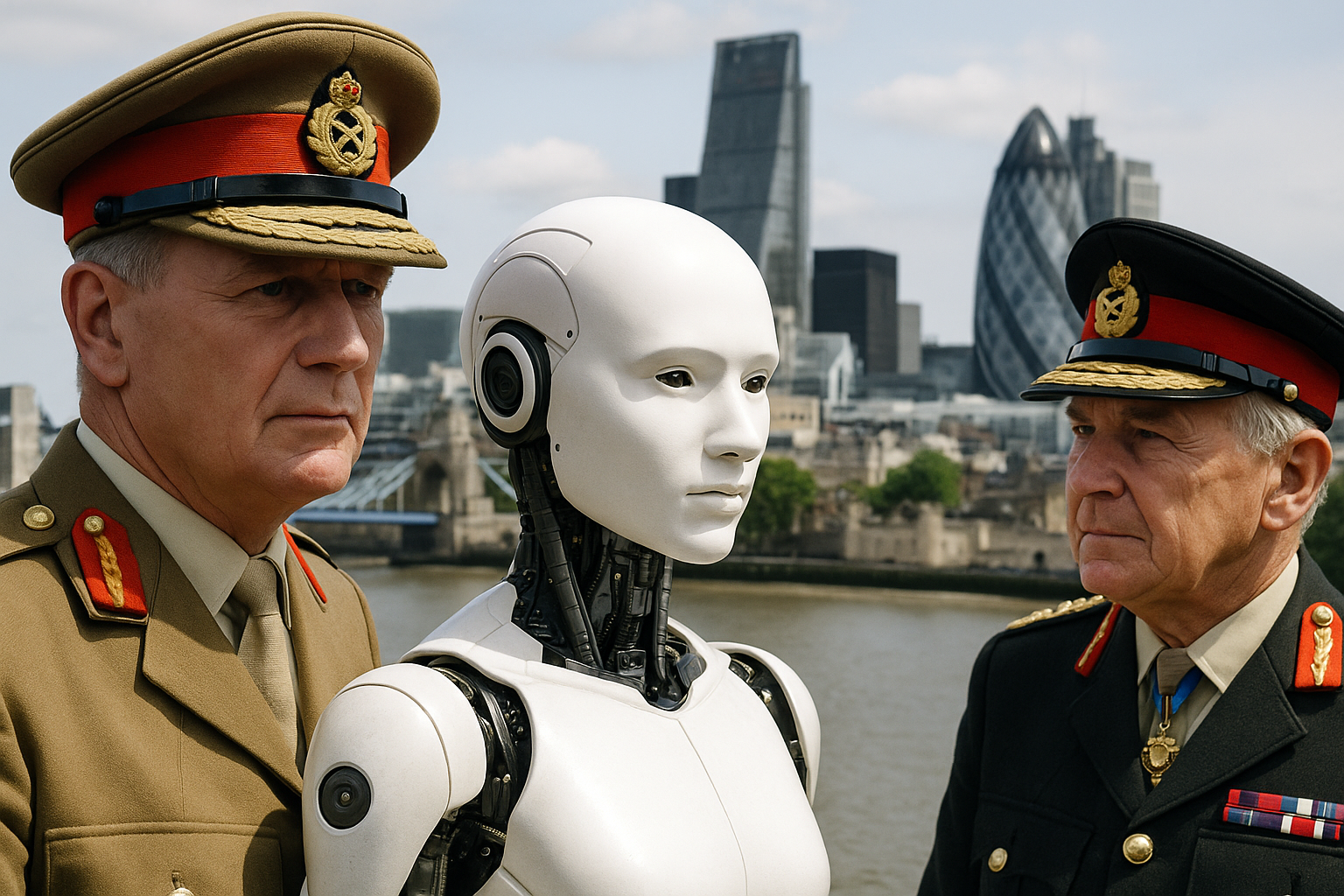

The Rise of AI in Modern Warfare
The integration of Artificial Intelligence (AI) into defence and aerospace sectors is revolutionizing military operations. From autonomous drones to predictive analytics, AI enhances decision-making, efficiency, and strategic capabilities. This technological evolution is reshaping the military-industrial complex, fostering collaborations between tech firms and defence agencies.
Transforming the Military-Industrial Complex
The traditional military-industrial complex, characterized by long-standing defence contractors, is experiencing a paradigm shift. Tech companies like Anduril Industries and Palantir are now pivotal players, offering AI-driven solutions that outpace conventional systems. Anduril’s autonomous systems, powered by its Lattice AI platform, exemplify this transition .Wikipedia+2The Week+2Financial Times+2Wikipedia+3Anduril+3Business Insider+3
Global AI Arms Race and Geopolitical Implications
Nations are investing heavily in AI to gain strategic advantages. China’s development of AI systems capable of identifying nuclear warheads underscores the technology’s potential in arms control . This global AI arms race raises concerns about escalation and the need for international regulations.The Economic TimesWikipedia
Innovations in Aerospace Engineering
AI is streamlining aerospace engineering processes, from design to maintenance. Companies like Airbus are leveraging AI for predictive maintenance, reducing downtime and enhancing safety . Similarly, Boeing employs machine learning algorithms to optimize production efficiency .Tonex TrainingMiddle Market Growth
Educational Pathways in AI for Defence and Aerospace
To meet the growing demand for AI expertise, educational institutions offer specialized courses:Carnegie Endowment+33Tonex Training+33Financial Times+33
- Responsible AI in Aerospace: An 8-week program focusing on ethical AI applications in aerospace.AIAA – Shaping the future of aerospace
- AI in Aerospace Engineering Bootcamp: A 2-day intensive course covering AI integration in aerospace systems.Tonex Training+1Tonex Training+1
- AI for Defence: A module exploring machine learning applications in defence scenarios.ASSETs+ project
Ethical Considerations and Challenges
The deployment of AI in military contexts raises ethical questions. Concerns about autonomous weapons, accountability, and decision-making processes necessitate robust ethical frameworks. Adhering to principles like Fairness, Accountability, Transparency, and Ethics (FATE) is crucial .New York PostarXiv
Conclusion
The infusion of Artificial Intelligence (AI) into defence and aerospace industries is redefining the military-industrial complex. While offering enhanced capabilities and efficiency, it also presents challenges that require careful navigation. Balancing innovation with ethical considerations will be key to harnessing AI’s full potential in these critical sectors.
Bibliography
- “Meta Fired Palmer Luckey. Now, They’re Teaming Up on a Defense Contract.” The Wall Street Journal.Wikipedia+7WSJ+7The Washington Post+7
- “AI vs Nukes: How China’s new tech could shake up global arms control.” The Economic Times.The Economic Times
- “Artificial Intelligence in Aerospace and Defense: Slow Path to Disruption.” Middle Market Growth.neuralconcept.com+3Middle Market Growth+3Airforce Technology+3
- “Ethical Considerations for the Military Use of Artificial Intelligence in Visual Reconnaissance.” arXiv.arXiv
- “AI in Aerospace Industry: Redefining Intelligent Engineering.” Neural Concept.neuralconcept.com
- “AI in Defense.” PwC Strategy&.PwC
- “AI in Aerospace Engineering Bootcamp.” Tonex Training.Tonex Training+1Tonex Training+1
- “Responsible AI in Aerospace.” AIAA.Defense Update+20AIAA – Shaping the future of aerospace+20AIAA – Shaping the future of aerospace+20
- “AI for Defence.” ASSETs+ Project.ASSETs+ project+1Financial Times+1
- “Anduril Industries.” Wikipedia.The Washington Post+7The Economic Times+7Wikipedia+7














